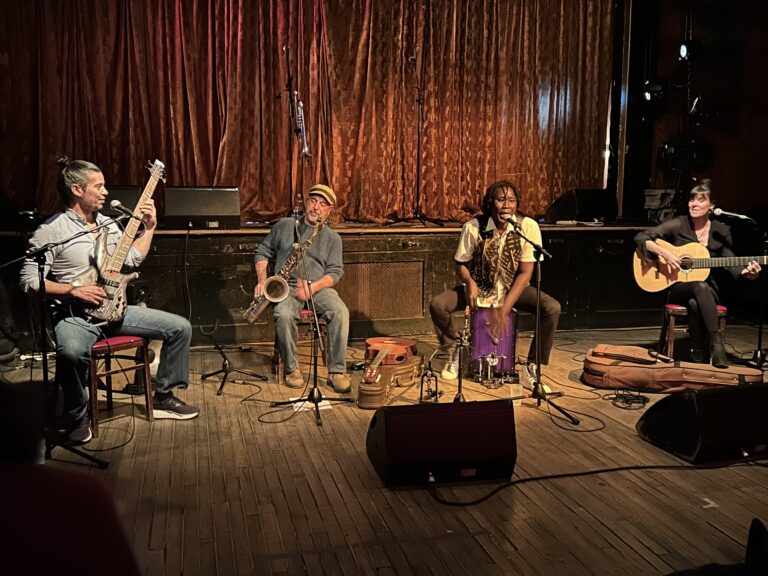Accompanied by flamenco composer and guitarist Caroline Planté and Venezuelan Héctor Alvarado Pérez on bass, it did not take too long for Noubi to invite Argentine saxophonist Damian Nisenson on stage. The latter, who had introduced the evening a few minutes earlier, is the man behind Malasartes, the creation and production company behind this series of autumn concerts.
Noubi’s themes range from youth issues, politics and individualism in Western societies, to denouncing violence in all its forms, as he does in the track Nanela. It was during this track that the audience began to dance, unable to sit still any longer, as Noubi got the audience involved in the chorus in Wolof.
He takes the time to thank his audience after each track, in French and in Wolof, his mother tongue. Indeed, this native of Saint-Louis in Senegal is very attached to his language, since all his tracks are in his native tongue, to which he adds a few French lyrics here and there. Caroline and Héctor also sing backing vocals in Wolof on some tracks, adding an extra element of surprise to the show. Mainly on his cajon, he plays guitar once or twice, complementing his musicians. The strong complicity, especially with Damian, was felt throughout the show, the two having worked together for several years since his debut in Montreal, as part of Diversité artistique Montréal’s mentoring program.
Noubi also pays tribute to his mom on Légui, “thanking the woman who made him the man he is today”, he confides. He also shares his collaborations with great artists such as Brazil’s Bia Krieger and Mexico’s Mamselle Ruiz, on the track Sourire, both of whom are unfortunately absent.
In the track Autrement, he invites the audience to take “a new look at the world, a new look at life”, between the jerky rhythms of the cajon and the flamenco guitar, which merge perfectly. I was surprised to see how well the rhythms of Mbalax went with the flamenco style, an original combination. And that’s exactly what came out of this concert: Noubi’s openness to others, to other rhythms from Latin America and elsewhere, all with originality, while inviting the audience into his Senegalese-Quebecois universe. A true melting pot of sounds.
























